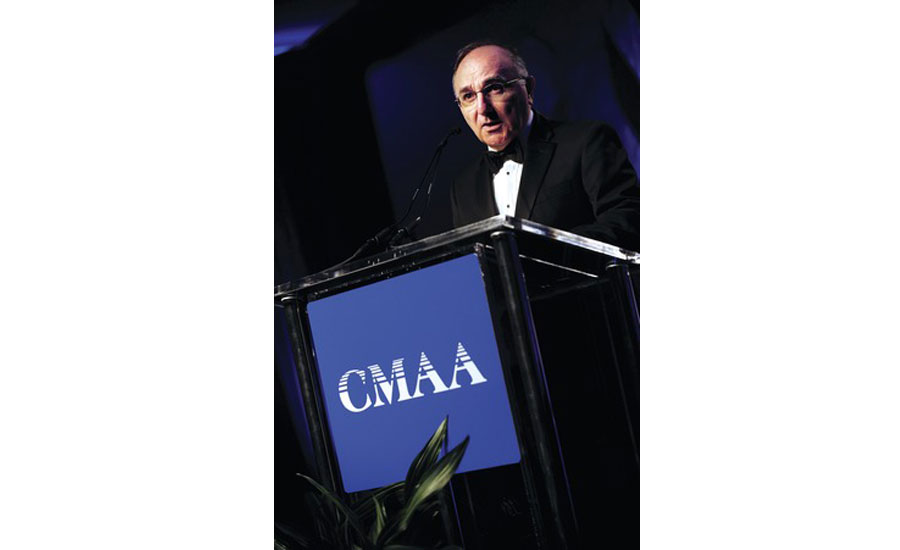
If the construction industry is looking for its next generation of leaders, one of Dr. Mark Hasso's classes at the Wentworth Institute of Technology in Boston would be a good place to begin the search. Hasso, a 30-year industry professional who joined Wentworth's Building Construction Management (BCM) program as a professor in 1989, has helped develop one of the most hands-on academic programs in the country, making the classroom a virtual jobsite for students.
In laying out his teaching philosophy, Hasso explains that allowing students in an academic environment to see how practices are applied in the field makes the subject matter more relevant and attractive to future professionals. "They are also better able to relate to the real world of construction when it's time to join it themselves, making them ready to assume management positions and responsibilities," he adds.
Hasso, who served as BCM program director from the late 1990s to 2012, oriented the program's upper-level courses around student teams tasked with studying the interdisciplinary aspects of both actual and simulated projects: from concept to proposal development and from performance clauses to pricing. Grades are often based in part on critiques from industry professionals, who often visit the classroom to give presentations and lead discussions.
Hasso's classes also stress other key aspects of being a construction professional—including time management, group leadership, continuing education and industry involvement. He encourages students to pursue certifications from the Construction Management Association of America, an organization he's been closely involved with for more than two decades.
Hasso says nearly every Wentworth BCM student who takes CMAA's Construction Manager In-Training exam passes on the first attempt. He often brings students to regional and national conferences.
Although the program saw a dip in enrollment during the recent recession, it expects to graduate 80 students this year and welcome 130 newcomers in the fall. "Our applications are up because students once again see construction as a good field to get into," he says, noting that with approximately 380 students overall, the program is not far from its goal of 500 enrollees.
Hasso's success goes well beyond the numbers, according to Paul Hemphill, a vice president of construction services at Boston-based City Point Partners who has worked with and hired many of the educator's former students. "Mark brings a real-world atmosphere that makes a difference with students because they're not just learning, they're having fun," he says.
Leslie Becker, a 1993 Wentworth graduate who now is Connecticut operations manager for Keville Enterprises, Marshfield, Mass., agrees. "Rather than sitting in a classroom reading information out of a book you might not need later, Dr. Hasso brought us into the mix of things and showed us how they work," she says. "The group work we did in classes is exactly what I do now."
Passion for Industry and Instruction
Hasso's teaching philosophy was honed during a career that included structural design and construction management for a variety of institutional, commercial and municipal infrastructure projects in the U.S. and overseas. After teaching occasional courses at various New England colleges, he joined the faculty of Wentworth so that he could devote more time to education while still maintaining his professional practice.
One of Hasso's priorities upon becoming BCM program director was to expand what was a four-member advisory board into a larger, more diverse group that more accurately represents the multidisciplinary nature of major construction projects. Along with members from leading regional construction management companies such as Turner, Perini, and Bond Brothers, the advisory board also recruited public- and private-sector owners, trade subcontractors, attorneys and representatives from insurance companies and technology firms.
Hasso says the expanded advisory board provides a broad range of topical instruction, mentoring, networking and employment opportunities, but also has boosted the program's scholarship resources, making it accessible to even more students, particularly women. Hasso estimates that eight to 10 women graduate from the program annually.




Post a comment to this article
Report Abusive Comment